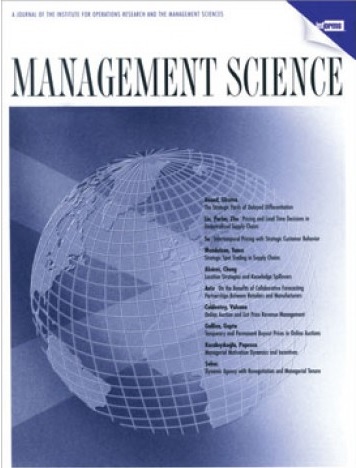Analysis of earnings calls: Blathering managers harm their company
In regular earnings conference calls, the management of listed companies discusses key financial figures with analysts, investors and the media. How executives behave in these question-and-answer sessions has direct consequences for the company's value. If they dodge questions or give muddled answers, the company's share price falls shortly afterwards. Moreover, investors have to pay increased insurance premiums to protect themselves against a further drop in the share price. This is because non-answers from company leaders are interpreted by professional market observers as uncertainty. They assess the associated risk negatively. The company's reputation suffers.
This result of a study by the Halle Institute for Economic Research (IWH) proves how an information gap burdens economic activity. The effort to reduce information asymmetry through questions and answers is disrupted with unclear information.
"Blathering does not help companies".
The analysis is based on around 1.2 million responses that managers of companies from the US S&P 500 stock index gave to analysts in the years 2002 to 2019. IWH financial market researcher Fabian Wöbbeking and his two co-authors Andreas Barth and Sasan Mansouri had previously trained a computer programme using machine learning. The algorithm was finally able to decide whether a question was answered or not – independent of a human's subjective judgement. As the researchers found, combinations of three words are enough to expose a non-answer. They repeatedly encountered the same language patterns for refusals to answer such as "I don't know", phrases such as "an interesting question" and excuses such as "back to you".
Managers are particularly evasive when confronted with harsh questions or when asked to comment on the future development of the company, which is inevitably fraught with ambiguity. Regardless of the type and reason, non-answers have negative economic consequences. The researchers were able to identify these by comparing companies that communicate clearly and those that do not. All other things being equal, the share price of the latter performed significantly worse.
IWH researcher Wöbbeking concludes: "Blathering does not help companies". Managers who withhold answers harm their own companies and hinder market activity. "A transparent market is desirable because it leads to efficient pricing," says Wöbbeking. "Anything you can do to make the market a little more transparent makes sense, for example by managers expressing themselves precisely."
Publication: Andreas Barth, Sasan Mansouri, Fabian Wöbbeking: "Let Me Get Back to You" — A Machine Learning Approach to Measuring NonAnswers, in: Management Science, forthcoming.
Whom to contact
For Researchers

Research Group Head
If you have any further questions please contact me.
+49 345 7753-851 Request per E-MailFor Journalists

Internal and External Communications
If you have any further questions please contact me.
+49 345 7753-832 Request per E-MailIWH list of experts
The IWH list of experts provides an overview of IWH research topics and the researchers and scientists in these areas. The relevant experts for the topics listed there can be reached for questions as usual through the IWH Press Office.
Related Publications

"Let Me Get Back to You" — A Machine Learning Approach to Measuring NonAnswers
in: Management Science, 10, 2023
Abstract
Using a supervised machine learning framework on a large training set of questions and answers, we identify 1,364 trigrams that signal nonanswers in earnings call questions and answers (Q&A). We show that this glossary has economic relevance by applying it to contemporaneous stock market reactions after earnings calls. Our findings suggest that obstructing the flow of information leads to significantly lower cumulative abnormal stock returns and higher implied volatility. As both our method and glossary are free of financial context, we believe that the measure is applicable to other fields with a Q&A setup outside the contextual domain of financial earnings conference calls.



